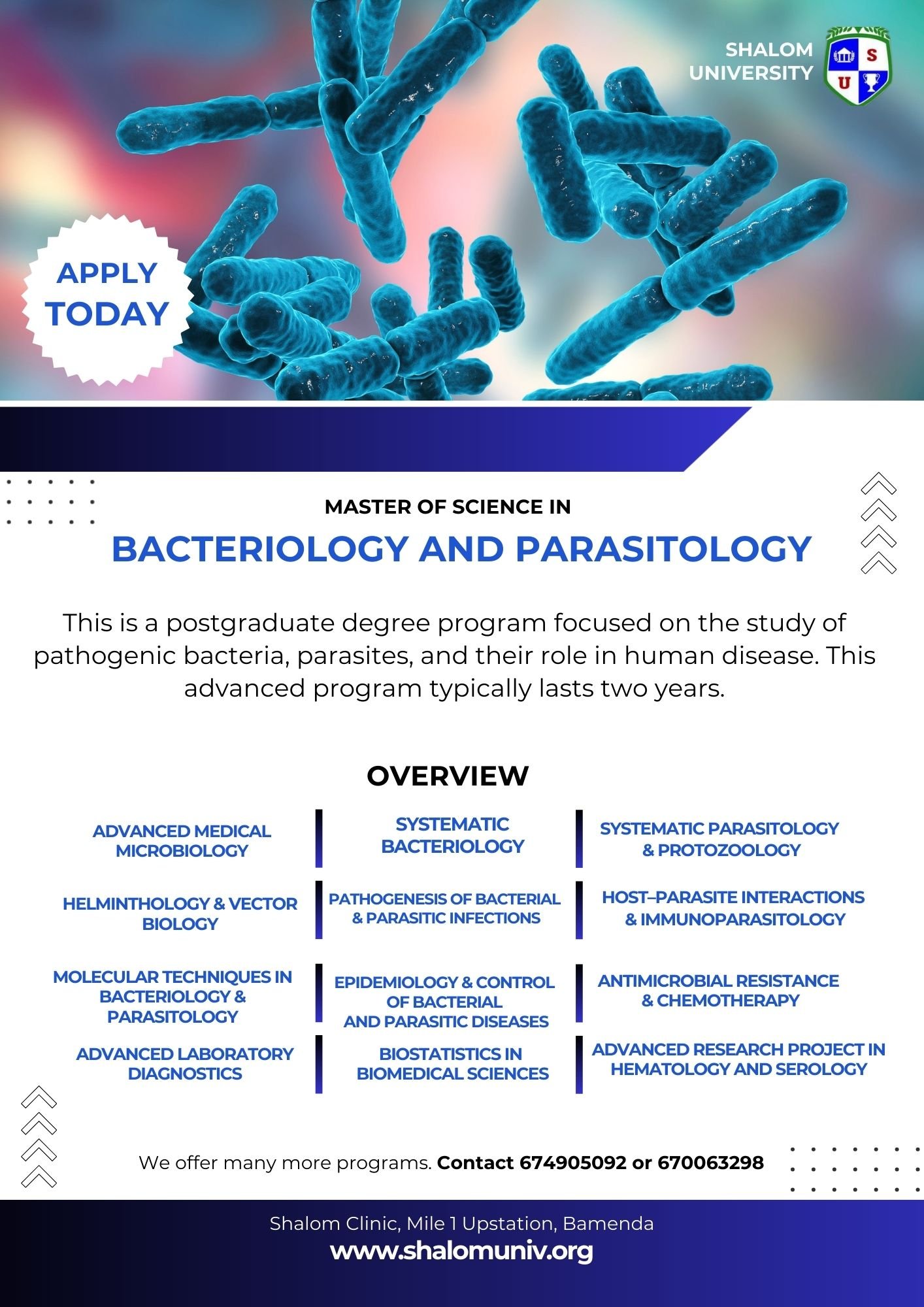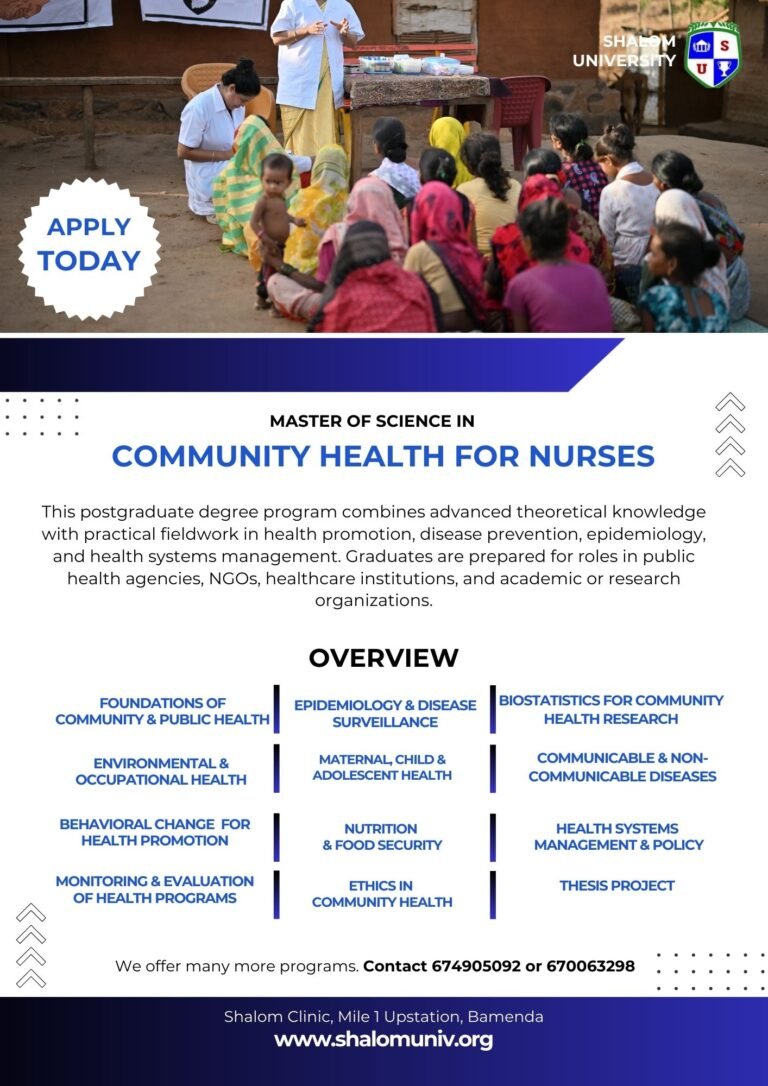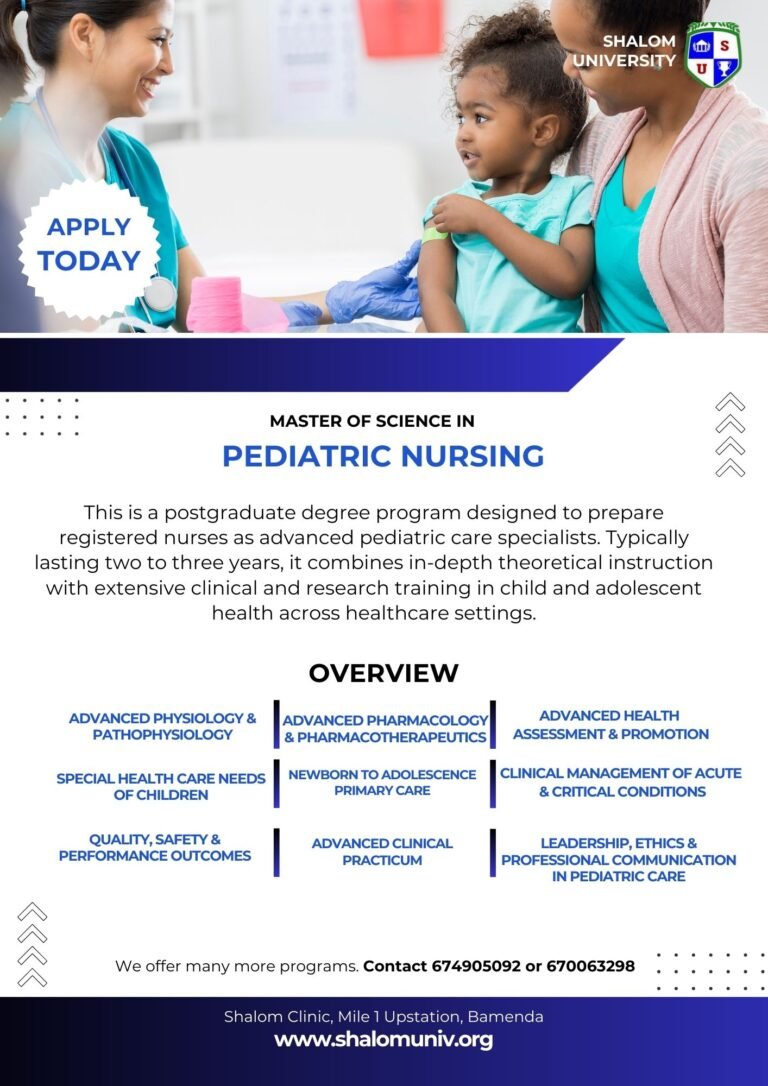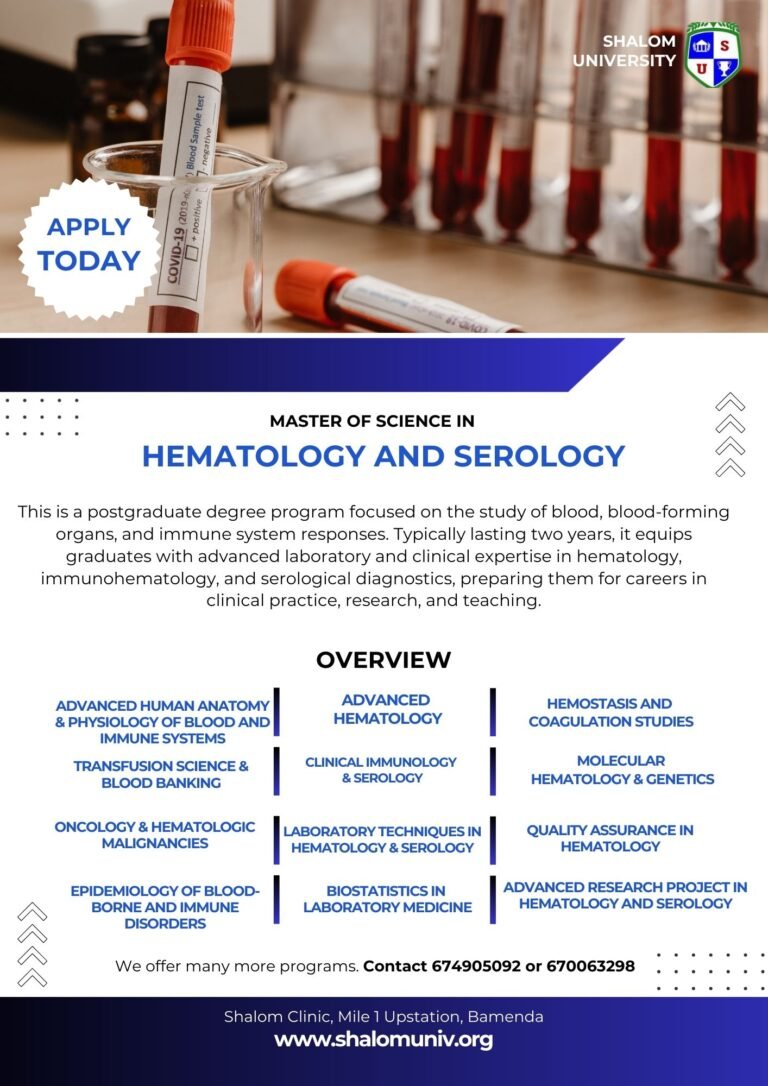In an era where infectious diseases continue to challenge healthcare systems worldwide, the need for highly skilled professionals in microbiology, bacteriology, and parasitology has never been greater. At Shalom University, our Master of Science (MSc) in Bacteriology and Parasitology prepares students to understand pathogens at the molecular level, develop diagnostic solutions, and contribute to disease prevention and control globally.
This postgraduate program blends advanced theory, laboratory training, and research, ensuring graduates can thrive in clinical laboratories, academic institutions, pharmaceutical companies, and public health organizations. Below is a breakdown of the core modules that make this MSc program one of the most comprehensive in Africa.
Advanced Medical Microbiology
Students begin with a strong foundation in medical microbiology, studying pathogenic microorganisms and their clinical relevance. The course explores microbial diversity, diagnostic microbiology, and the role of microorganisms in human disease.
Systematic Bacteriology
The systematic bacteriology module introduces the classification, structure, and behavior of bacteria. Students learn how different bacterial families are identified, their ecological significance, and their impact on human health. This knowledge supports careers in clinical bacteriology and public health laboratories.
Systematic Parasitology & Protozoology
This course covers protozoan parasites, their life cycles, and their role in human diseases such as malaria, leishmaniasis, and trypanosomiasis. Students gain the expertise to diagnose protozoal infections and conduct fieldwork in endemic regions.
Helminthology & Vector Biology
Focusing on helminths (worms) and vectors (such as mosquitoes and flies), this module prepares students to understand parasitic transmission dynamics. It also explores vector control strategies, which are essential in reducing disease burdens in communities.
Pathogenesis of Bacterial & Parasitic Infections
Here, students investigate the mechanisms of infection at cellular and molecular levels. By understanding how bacteria and parasites cause disease, students are better equipped to design effective prevention and treatment strategies.
Host–Parasite Interactions & Immunoparasitology
This subject explores the complex relationship between host immunity and parasitic infections. It highlights how parasites evade immune responses and how the human body adapts to persistent infections, a critical area for vaccine and therapeutic research.
Molecular Techniques in Bacteriology & Parasitology
Students gain hands-on training in molecular biology techniques such as PCR, DNA sequencing, and molecular diagnostics. These skills are crucial in modern laboratories, especially for research on antimicrobial resistance and emerging pathogens.
Epidemiology & Control of Bacterial and Parasitic Diseases
This course emphasizes the public health dimensions of infectious diseases. Students learn to track disease outbreaks, design control programs, and implement prevention strategies in both rural and urban contexts.
Antimicrobial Resistance & Chemotherapy
Antimicrobial resistance is a global health crisis. This module equips students to study resistant strains of bacteria and parasites, evaluate treatment protocols, and research new therapeutic solutions.
Advanced Laboratory Diagnostics in Microbiology & Parasitology
This practical-focused course trains students to use advanced diagnostic tools for detecting bacterial and parasitic infections. Students practice microscopy, culture techniques, serological tests, and molecular diagnostics in well-equipped labs.
Research Methods & Biostatistics in Biomedical Sciences
Students are trained in research methodology, study design, and biostatistical analysis. These skills enable them to conduct high-quality research projects, analyze data, and contribute to scientific publications.
Thesis/Capstone Project in Bacteriology and Parasitology
The program concludes with a thesis or capstone project, where students conduct independent research on a relevant topic in bacteriology or parasitology. This project showcases their ability to address real-world health problems through scientific investigation.
Why Choose Shalom University’s MSc in Bacteriology and Parasitology?
Shalom University stands out for its state-of-the-art laboratories, experienced faculty, and strong public health partnerships. Graduates of this program are not only prepared for academic careers but also for leadership positions in global health organizations, diagnostic labs, and biomedical research centers.
By enrolling in this MSc program, students join a network of professionals committed to fighting infectious diseases and safeguarding community health.
👉 Learn more about the MSc in Bacteriology and Parasitology and other Master of Science programs at Shalom University today.




